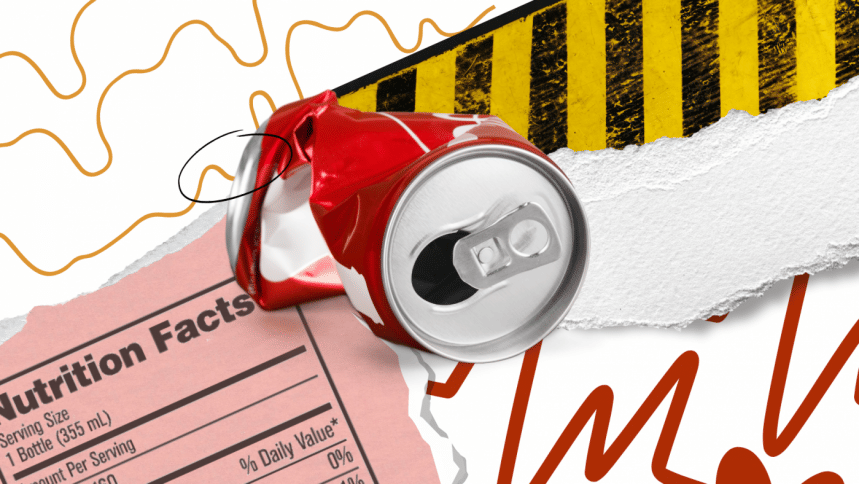Soft drinks shouldn’t be your go-to thirst quencher

In the sweltering heat of 43 degrees Celsius, a bottle of cold drink is hard to avoid. For someone like me, who could chug on a 1.25-litre bottle of cola by myself, it took me very little to stop myself from taking a single sip this entire heat wave. I just had to find out what was inside the drinks I was putting in my body.
Let's look at a typical bottle of cola. It contains 44 kilocalories (kcal) per 100 ml, which is around 264 kcal for a 600 ml bottle. Although it is equivalent to a meal itself, it is adding no nutritional value at all. A cold drink followed by a meal ends up being two meals at once.
However, if you think a bottle of soft drink in the middle of the day to get rid of dehydration might be harmless, a recent study shows that hydration with soft drinks might exacerbate dehydration by discharging extra water from the body. So, rather than helping you with dehydration, soft drinks end up making you feel more dehydrated, along with renal injury and hypertension in the long term.
A typical bottle of cola also contains around 10.6 grams of sugar per 100 ml, which converts to 63.6 grams for a 600 ml bottle. If we consider the orange flavoured drinks, the sugar content is even more. According to American Heart Association (AHA), our body needs zero extra sugar daily. The sugar we consume from fruits or vegetables is enough to meet our daily requirements. However, the AHA suggests a stricter added-sugar limit of no more than 100 calories per day (about 24 grams) for adult women and no more than 150 calories per day (about 36 grams of sugar) for men. The added sugar can result in diseases ranging from hypertension to type-2 diabetes.
The dark colour in cold drinks comes from ammonia-containing caramel which is basically burnt sugar. Centre for Science in The Public Interest (CSPI) claims that the chemical reaction between sugar and ammonia can form carcinogens and has requested the United States Food and Drug Administration (FDA) to ban ammonia-containing caramel which is commonly used in soft drinks. Soft drink companies have changed the caramel recipe used in the USA. But for countries where 4-methylimidazole (4-MEI) used in caramels is not identified as a carcinogen, the recipe remains the same.
If you think diet drinks might be a better option, you should know that artificial sweeteners such as Aspartame, Saccharine, and Sucralose are used in diet cokes. Although Aspartame's direct link to cancer has been debated for over the years, artificial sweeteners have been linked to diabetes, weight gain, IBS, and Crohn's disease.
In orange flavoured drinks, food colours such as E110 are often used which includes side effects such as allergic reactions, nausea, nasal congestion, kidney swelling, and even chromosomal damage. In children's diets, E110 is heavily discouraged since it agitates hyperactive behaviour and loss of concentration in children. Although E110 is banned in multiple countries across the world, Bangladesh allows it to be used under caution.
Sodium Benzoate is also used in most common cold drinks which, when in contact with light and heat, can convert to Benzene, a commonly known carcinogen.
Unfortunately, beverage companies keep trying to legalise these additives by political lobbying and continue to use these additives in countries where the restrictions are more lenient. Since consumer health is the least of their concern and heat waves aren't going anywhere, it's up to us to truly understand the effects of what we consume.
References:
1. American Journal of Physiology (July 1, 2016). Rehydration with soft drink-like beverages exacerbates dehydration and worsens dehydration-associated renal injury.
2. Dhruv Rathee. YouTube (August 17, 2022). Dark Reality of Cold Drinks.
3. American Heart Association. How Too Much Added Sugar Affects Your Health Infographic.
Remind Ifti to be quieter at [email protected]

 For all latest news, follow The Daily Star's Google News channel.
For all latest news, follow The Daily Star's Google News channel. 








Comments